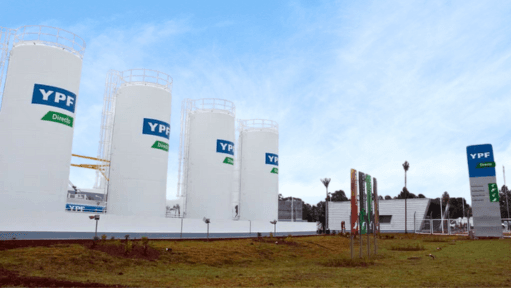
U.S. Supreme Court Sides with Argentina in $16 Billion YPF Nationalization Dispute
Landmark Ruling Shields Argentina from Massive Judgment, Upholds Sovereign Immunity in Foreign Nationalization Cases
In a landmark ruling, the U.S. Supreme Court has sided with Argentina in a high-stakes dispute involving a $16 billion judgment related to the country’s 2012 nationalization of energy giant YPF (Yacimientos Petrolíferos Fiscales). The ruling marks a significant turn in Argentina's long-running legal battle with former YPF shareholders, who had alleged that Argentina’s government violated investor rights and contractual obligations when it took control of the oil company over a decade ago.
Background of the YPF Nationalization and Legal Claims
In 2012, Argentina’s government nationalized YPF, its largest energy company, by seizing a controlling stake held by Spanish firm Repsol and other minority shareholders. The move was part of Argentina’s broader energy strategy, aimed at securing national energy resources amid declining domestic oil production and rising energy imports. The nationalization, however, sparked controversy among international investors who claimed that Argentina failed to adhere to contractual commitments laid out when YPF was privatized in the 1990s.
Shareholders argued that Argentina should have made a tender offer to acquire their shares, as mandated by YPF’s corporate bylaws, which outlined specific procedures for government intervention. The lack of a formal offer, they claimed, deprived them of billions in compensation, leading to substantial financial losses. Following a series of lower court proceedings, Argentina was ordered to pay a judgment totaling $16 billion in damages to the former YPF shareholders.
Supreme Court’s Ruling and Key Legal Issues
The Supreme Court’s decision to reverse the judgment focused on sovereign immunity principles and the application of U.S. federal law to foreign state actions. Argentina argued that the claims were inherently linked to its sovereign functions and economic policies, which should be protected from legal challenges under the Foreign Sovereign Immunities Act (FSIA).
The Supreme Court agreed, finding that the lawsuit was barred under FSIA since Argentina’s actions were governmental, not commercial. The Court emphasized that nationalization decisions, especially in energy sectors crucial to national interests, are typically sovereign acts. The ruling further underscored that U.S. courts must exercise caution when handling cases involving foreign governments, particularly where national policies and assets are at stake.
Implications of the Decision
The Supreme Court’s ruling is expected to have wide-reaching effects on international investment disputes and the scope of U.S. jurisdiction over foreign state actions. By shielding Argentina from the massive judgment, the Court reaffirmed the importance of sovereign immunity and signaled its reluctance to entangle U.S. courts in disputes arising from foreign nationalization policies. This ruling is likely to impact similar cases, especially those involving emerging-market economies where governments frequently assert control over critical industries.
For Argentina, the decision offers relief from a potentially crippling financial obligation, as the $16 billion judgment represented a considerable burden on the country's already strained economy. The ruling not only protects Argentina’s assets from seizure but also reinforces its authority over critical economic decisions without the interference of foreign courts.
Broader Impact on International Investors and Future Disputes
The outcome may cause concern among international investors who rely on protections in corporate bylaws and bilateral agreements to safeguard their interests in foreign markets. By affirming the reach of sovereign immunity, the Supreme Court’s decision could affect investor confidence, particularly in countries where political risks are high. Investors may now seek stronger guarantees in privatization agreements or look for alternative dispute resolution mechanisms outside of U.S. courts.
The ruling also raises questions about the effectiveness of enforcing corporate governance standards in state-led takeovers and nationalizations. With sovereign immunity serving as a robust defense, foreign governments may face fewer repercussions when they alter or bypass contractual obligations in national interest cases.
Looking Forward
While the Supreme Court’s ruling is a significant victory for Argentina, it may also shape the dynamics of global investment in the coming years. Nations with volatile economies or assertive nationalization policies may find it easier to manage foreign-owned assets without the threat of extensive legal liabilities. At the same time, foreign investors may adjust their risk strategies, potentially leading to an evolution in how multinational corporations engage with government-owned enterprises and privatized assets.
This case serves as a reminder of the complexities that arise when national interests and international investor rights intersect. For Argentina, the ruling is a critical step in stabilizing its economic policies, while for investors, it underscores the importance of due diligence and the need for clear, enforceable protections in international markets. As global economies continue to intertwine, the ruling will likely resonate with other countries navigating the challenges of balancing sovereignty with foreign investment obligations.